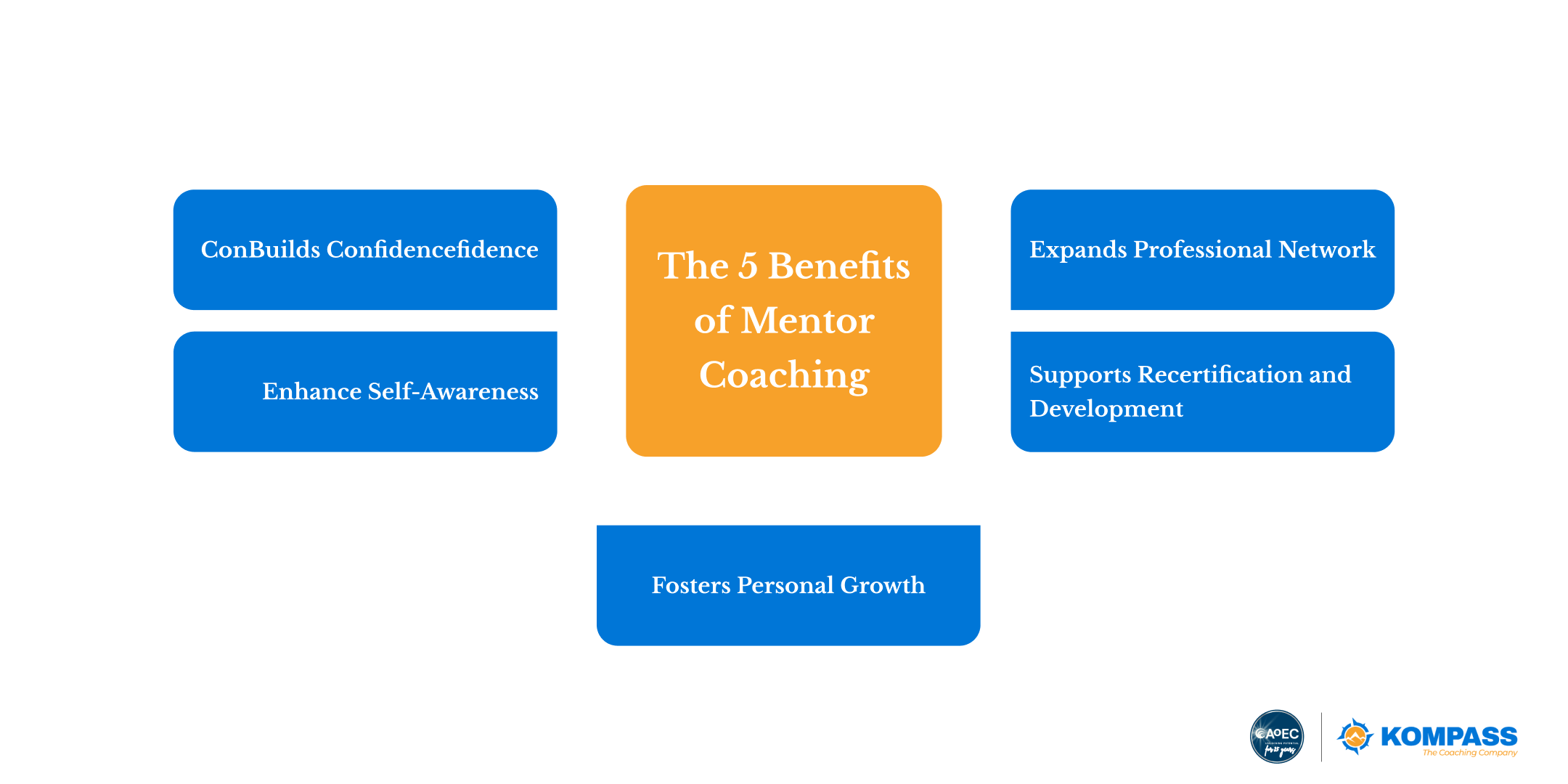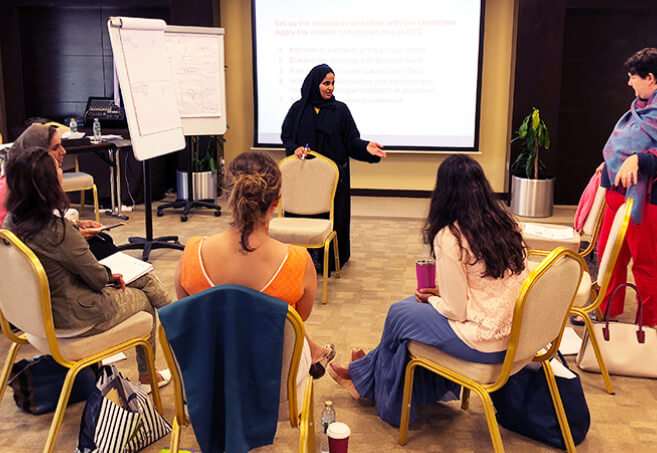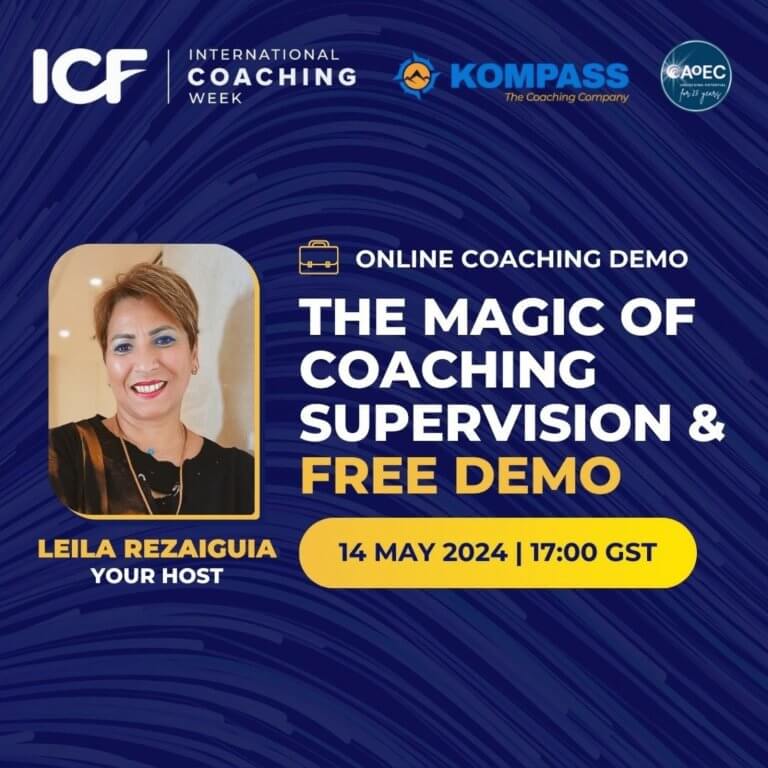Mentor coaching is vital in achieving or renewing certification with the International Coaching Federation (ICF). It’s a structured process where experienced, credentialed coaches provide feedback and guidance to help aspiring or practising coaches enhance their skills.
Beyond meeting a certification requirement, mentor coaching focuses on sharpening coaching competencies and aligning practices with ICF’s professional standards.
This blog explores what mentor coaching entails and why it’s a key step in the ICF credentialing process. We’ll examine how it supports professional growth, builds confidence, and prepares coaches for certification.
What Is Mentor Coaching?
Mentor coaching is a structured process where an experienced, credentialed coach helps another coach refine their skills and meet professional standards. For those exploring how to become an ICF certified coach in the UAE, mentor coaching is an essential step in the journey. The International Coaching Federation (ICF) focuses on developing the core competencies needed for certification. These competencies include effective communication and building trust with clients.
Unlike general coaching, mentor coaching is not about solving personal challenges or achieving external goals. It is designed to improve the professional coaching skills required for ICF credentials.
Responsibilities of an ICF Mentor Coach
An ICF mentor coach observes and reviews coaching sessions to assess the mentee’s use of core competencies. This process involves evaluating the effectiveness of the coaching techniques and identifying areas for improvement. For many, this guidance can serve as a foundation for career coaching focused on discovering and pursuing their passion, ensuring their coaching approach resonates with their professional goals.
The mentor provides detailed, constructive feedback based on the ICF core competencies. This feedback helps the mentee refine their skills and address gaps in their approach.
Mentor coaches also play a key role in supporting the mentee’s professional development. They offer practical advice and strategies to enhance confidence and coaching abilities.
Why Mentor Coaching Matters for Certification
Mentor coaching is a key step in achieving an ICF credential. It is a mandatory requirement, with coaches needing at least 10 hours of mentor coaching for ACC, PCC, or MCC certification. This ensures that they meet the high standards set by the ICF for professional practice.
Through mentor coaching, coaches receive focused guidance on aligning their skills with the ICF’s core competencies and ethical guidelines. This process helps them refine their techniques and ensures their coaching practice meets the expectations of the credentialing body.
The feedback provided by a mentor coach is instrumental in preparing for performance evaluations. By identifying strengths and addressing areas of improvement, the mentor ensures the coach is ready to demonstrate their abilities at the required standard.
The Broader Benefits of Mentor Coaching

-
Builds Confidence
Mentor coaching is significant in helping coaches build confidence in their abilities. Through focused feedback and guidance, coaches learn to identify and use their strengths effectively in their practice.
With greater confidence, they approach their sessions with clarity and purpose.
-
Enhances Self-Awareness
Coaches are encouraged to reflect on their methods and understand how their behaviours and decisions impact their clients. This process allows them to pinpoint their strengths and identify areas for improvement.
By becoming more aware of their habits and tendencies, coaches can make intentional changes to their practice, leading to more effective and meaningful coaching.
-
Fosters Personal Growth
Mentor coaching is also an opportunity for personal growth. The process challenges coaches to step outside their comfort zones and embrace new learning experiences. This fosters resilience, adaptability, and a commitment to continuous improvement.
As coaches develop professionally, they also grow personally, gaining skills and insights that benefit all aspects of their lives.
-
Expands Professional Networks
Mentor coaching provides a valuable chance to expand professional networks. By working closely with an experienced mentor, coaches establish relationships built on trust and shared learning.
Mentor coaching often connects individuals with peers and other professionals in the coaching community, creating opportunities for collaboration and support.
-
Supports Recertification and Development
Mentor coaching is essential for experienced coaches to maintain ICF credentials and stay current with professional standards.
It ensures that they continue to meet the requirements for recertification while refining and enhancing their skills.

The ICF Credentialing Process and Mentor Coaching
The ICF credentialing process offers three levels: Associate Certified Coach (ACC), Professional Certified Coach (PCC), and Master Certified Coach (MCC). Each level requires a specific number of coaching education hours, coaching experience, and demonstrated competency, often achieved through structured coaching skills training.
Mentor coaching is an essential part of this process. Candidates must complete at least 10 hours of mentor coaching with an experienced, credentialed coach for ACC, PCC, and MCC certification. This ensures their coaching practice aligns with ICF’s core competencies and ethical standards.
It is also essential to accurately track and document mentor coaching hours. This documentation is a required part of the certification application, providing evidence of the candidate’s commitment to professional development.
Tips on Selecting the Right ICF Mentor Coach
Choosing an ICF mentor coach with the appropriate credentials is vital. Look for a coach who holds a PCC or MCC credential, as they meet the ICF’s requirements to serve as mentors.
Consider the mentor’s experience and coaching style to ensure they align with your needs. Finding someone whose approach to feedback and guidance resonates with your learning style is essential.
The right mentor coach plays a critical role in your success. They help you meet certification requirements and support your professional growth, giving you the confidence and skills needed to excel in your coaching practice.







